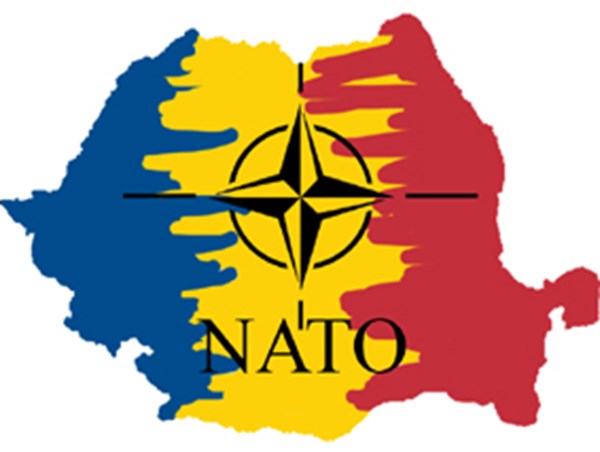In today’s complex geopolitical landscape, Romania has emerged as a cornerstone of NATO’s defense strategy in Eastern Europe, particularly amidst escalating tensions with Russia. Ronald H. Linden’s analysis in “Romania is America’s new indispensable ally in Eastern Europe” underscores Romania’s pivotal role, emphasizing its strategic geography and significant military contributions to the alliance.
Historical Context and NATO Integration
Since the fall of Communism in 1989, Romania has embarked on a trajectory aimed at integrating with Western institutions, including the European Union (EU) and NATO. Initially viewed with skepticism regarding its democratic stability and strategic value, Romania swiftly aligned itself with Western interests. The United States, recognizing the strategic imperative of expanding NATO’s reach in Eastern Europe, supported Romania’s accession, which was formalized in March 2004. This move was part of NATO’s broader strategy to enhance collective defense capabilities and deter potential regional aggression (Linden, 2024).
Geopolitical Significance of Romania
Romania’s geographic location is pivotal in NATO’s Eastern flank strategy. Situated on the western shores of the Black Sea, Romania shares borders with Ukraine and Moldova, countries experiencing significant geopolitical turmoil and Russian influence. The Black Sea region, historically contested and currently a focal point of NATO-Russia tensions, underscores Romania’s strategic importance. Bases like Mihail Kogalniceanu and Deveselu, along with others, play critical roles in enhancing NATO’s surveillance, intelligence gathering, and rapid response capabilities (Linden, 2024).
Military Infrastructure and Contributions
The Mihail Kogalniceanu Air Base near Constanta and the Deveselu military base housing the Aegis Ashore ballistic missile defense system are key NATO installations in Romania. These bases bolster regional security and serve as logistical hubs for multinational NATO operations. Mihail Kogalniceanu, for instance, has been pivotal in supporting NATO missions, including deployments to Afghanistan and other theaters, showcasing Romania’s commitment to collective defense and global security efforts (Linden, 2024).
Role in Regional Security
Romania’s proactive stance in regional security extends beyond its borders. Amidst the conflict in Ukraine and the Russian annexation of Crimea in 2014, Romania has played a supportive role, both militarily and diplomatically. The country has provided economic support to Ukraine and facilitated crucial logistics, such as granting access to its Black Sea ports for Ukrainian exports. This assistance underscores Romania’s solidarity with NATO allies and its commitment to stabilizing its Eastern neighborhood amidst Russian aggression (Linden, 2024).
Challenges and Responses
Romania faces unique challenges in its security landscape, particularly concerning Russian assertiveness in the Black Sea region. The annexation of Crimea and ongoing conflict in Eastern Ukraine have heightened security concerns, prompting NATO and Romania to enhance their defense posture. The rotational presence of NATO forces in Romania and joint exercises and training programs demonstrate a proactive approach to deterring potential threats and ensuring regional stability (Linden, 2024).
Diplomatic and Economic Dimensions
Beyond its military contributions, Romania’s diplomatic efforts are instrumental in fostering regional cooperation and stability. The country’s alignment with EU policies and its role as a transit hub for energy and trade further integrate Romania into broader European security frameworks. Diplomatic initiatives, such as supporting Moldova’s pro-Western orientation and advocating for EU integration, showcase Romania’s leadership in promoting democratic values and regional stability (Linden, 2024).
Public Support and Alliance Cohesion
Public opinion in Romania overwhelmingly supports NATO membership and cooperation with Western allies. This sentiment is crucial in maintaining alliance cohesion and resilience against external pressures. Political consensus across various administrations in Romania ensures continuity in defense policies and reinforces commitments to NATO’s collective defense principles (Linden, 2024).
Future Prospects and Strategic Imperatives
Romania’s strategic importance in NATO’s Eastern flank is poised to grow further. The evolving security landscape, characterized by hybrid threats and cybersecurity challenges, necessitates ongoing adaptation and investment in defense capabilities. Romania’s participation in NATO’s Enhanced Forward Presence (eFP) and other deterrence measures underscores its proactive role in shaping regional security dynamics (Linden, 2024).
Conclusion
Romania is a vital pillar of NATO’s defense architecture in Eastern Europe, confronting complex security challenges with resilience and resolve. Ronald H. Linden’s analysis aptly captures Romania’s transformation into an indispensable ally, underlining its strategic significance and contributions to NATO’s collective security. As geopolitical tensions persist, Romania’s proactive engagement and strategic investments will continue to play a crucial role in safeguarding regional stability and advancing Western security interests in Eastern Europe (Linden, 2024).
Reference:
Linden, Ronald H. “Romania is America’s New Indispensable Ally in Eastern Europe.” The Hill, July 31, 2024. https://thehill.com/opinion/international/4801359-romania-is-americas-new-indispensable-ally-in-eastern-europe/

